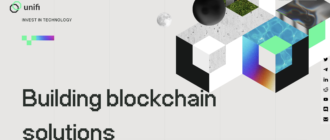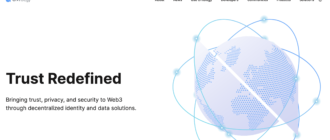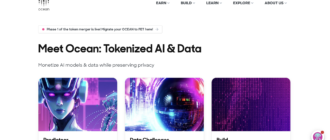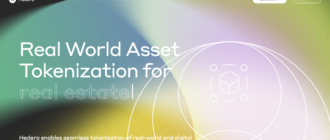In this article, we delve into the IDEX project, a prominent name in the decentralized finance (DeFi) ecosystem. We will explore various facets of the project, from its inception and technological framework to its tokenomics and ecosystem. Our goal is to provide a comprehensive understanding of IDEX’s unique hybrid decentralized exchange (DEX) model, which combines the strengths of centralized and decentralized exchanges. Additionally, we’ll examine its growth prospects and future development trajectory, offering insights into why IDEX stands out in the competitive landscape of cryptocurrency exchanges.
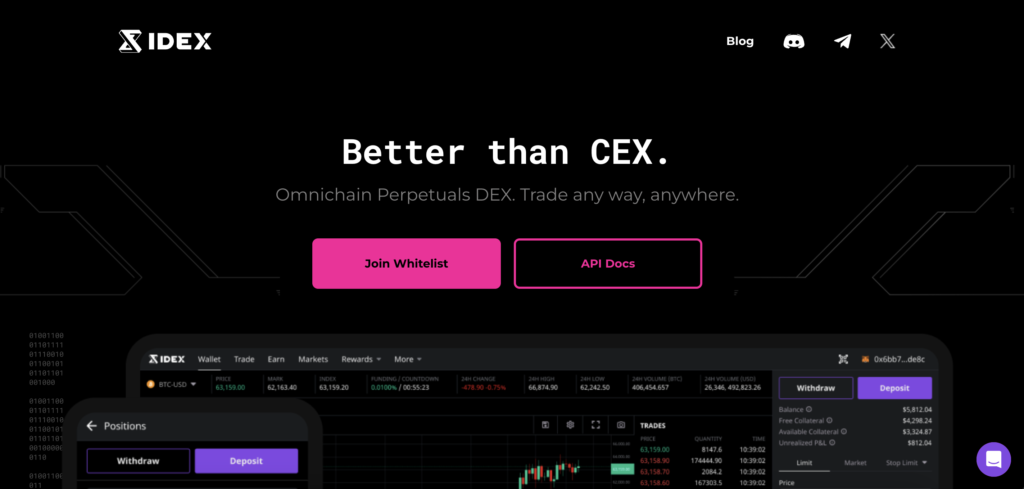
What is IDEX?
IDEX is a hybrid decentralized exchange (DEX) that uniquely combines the benefits of both centralized and decentralized trading platforms. It offers the high-performance characteristics of traditional centralized exchanges, such as real-time trade execution and advanced order types, while maintaining the security and self-custody features typical of decentralized exchanges. By using an off-chain matching engine and on-chain settlement, IDEX ensures fast, reliable trades without the risk of front-running and failed transactions common in purely on-chain DEX models. This hybrid approach allows for immediate trade execution and cancellation, providing users with a seamless and efficient trading experience.
History of the Project
IDEX was initially launched in 2017 under the name Aurora. The project aimed to create a real-time, non-custodial exchange that leveraged both centralized and decentralized technologies to enhance the user experience. In 2019, the project was rebranded to IDEX, marking a significant milestone in its development.
Key milestones in the history of IDEX include:
- 2017: Launch of Aurora, the original iteration of the platform.
- 2018: Integration with the popular Ethereum wallet, MetaMask, to streamline user transactions and enhance accessibility.
- 2019: Rebranding from Aurora to IDEX, alongside the introduction of a token swap feature allowing AURA holders to exchange their tokens for IDEX tokens.
- 2020: Launch of IDEX 2.0, which brought enhanced performance, new features, and improved user experience.
- 2021: Expansion of IDEX’s capabilities with integrations into Binance Smart Chain and announcements of future integrations with other networks such as Polkadot.
Throughout its evolution, IDEX has remained focused on improving the efficiency and security of decentralized trading, positioning itself as a pioneer in the hybrid DEX space.
How Does IDEX Work?
IDEX operates on a hybrid model that integrates both centralized and decentralized technologies to offer a unique trading experience. The platform utilizes an off-chain matching engine for trade execution while ensuring on-chain settlement through smart contracts on the Ethereum blockchain. This combination allows IDEX to provide the speed and user experience of centralized exchanges with the security and control of decentralized exchanges.
Underlying Technologies
Off-Chain Matching Engine:
IDEX uses an off-chain matching engine to handle trade execution. This engine matches buy and sell orders in real-time, allowing for instant trade confirmations without the latency typically associated with on-chain transactions. By managing the order book and trade execution off-chain, IDEX ensures high throughput and low latency, akin to centralized exchanges.
On-Chain Settlement:
Once a trade is executed off-chain, the details are sent to the Ethereum blockchain for settlement. This ensures that the actual transfer of assets occurs on-chain, leveraging the security and immutability of the blockchain. This hybrid approach mitigates issues like front-running and failed transactions, which are common in purely on-chain DEXs.
Smart Contracts:
IDEX smart contracts facilitate the secure custody and transfer of assets. Users deposit their assets into these smart contracts, which then manage the release of funds based on the successful execution of trades. This setup ensures that users retain control over their funds, reducing the risks associated with centralized custody.
Differentiation from Other Projects
IDEX stands out from other decentralized exchanges due to its hybrid model. While most DEXs rely solely on Automated Market Maker (AMM) models, IDEX uses a traditional order book system combined with off-chain execution. This allows for more complex trading strategies, such as limit orders and stop-loss orders, which are not typically available on AMM-based platforms.
Advanced Order Types:
Unlike many DEXs that offer only basic swap functionalities, IDEX supports advanced order types like limit orders, stop-loss orders, and post-only orders. This makes IDEX more appealing to professional traders who require more sophisticated trading tools.
Gas-Free Cancellations:
One of the significant advantages of IDEX is the ability to cancel orders without incurring gas fees. Since the matching and cancellation occur off-chain, users can adjust their orders without paying the high gas fees that are often a barrier on Ethereum-based platforms.
Blockchain and Consensus Mechanism
IDEX operates on the Ethereum blockchain, utilizing Ethereum’s robust infrastructure for security and decentralization. The settlement layer of IDEX is built on Ethereum, benefiting from its extensive network of nodes and validators.
Consensus Mechanism:
Ethereum currently uses the Proof of Stake (PoS) consensus mechanism following its transition from Proof of Work (PoW). In PoS, validators are chosen to create new blocks and confirm transactions based on the number of tokens they hold and are willing to “stake” as collateral. This transition has increased the efficiency and scalability of the Ethereum network, making it a more suitable foundation for IDEX’s operations.
Layer 2 Scaling Solutions:
To further enhance scalability and reduce transaction costs, IDEX integrates Layer 2 scaling solutions. These solutions, such as Rollups, process transactions off the main Ethereum chain and then post the transaction data to the main chain. This significantly reduces congestion and lowers gas fees, improving the overall user experience.
Security Features:
Security on IDEX is ensured through its smart contracts and decentralized structure. Funds are held in smart contracts, and private keys are never exposed to the exchange, reducing the risk of hacks. Additionally, the use of hardware wallets like Ledger and Trezor further enhances the security for users.
Tokenomics of IDEX
IDEX is a utility token used on the IDEX decentralized exchange. Unlike a coin, which operates on its native blockchain, a token exists on an existing blockchain—in this case, Ethereum. The IDEX token facilitates various functions within the ecosystem, including trading fee discounts, liquidity incentives, and governance voting.
Token Distribution
The total supply of IDEX tokens is capped at 1 billion. The distribution is as follows:
- 40% for market maker rewards, marketing campaigns, and airdrops.
- 25% allocated to the team.
- 10% for IDEX members.
- 10% for a future employee token pool.
- 10% reserved for future use.
- 5% for business expenses.
Emission Model
IDEX tokens were initially distributed through a token swap when the project rebranded from Aurora to IDEX. AURA token holders were able to exchange their tokens for IDEX at a 1:1 ratio. The fixed supply model ensures that no new tokens will be minted, protecting against inflation and maintaining the value of the tokens.
Utility and Value
IDEX tokens are primarily used to pay trading fees on the platform. Holding IDEX tokens grants users reduced fees, creating an incentive to hold and use the token. Additionally, staking IDEX tokens allows users to earn rewards from trading fees, providing a source of passive income. The staking mechanism also supports the network’s liquidity and operational stability.
Price History
The price of IDEX has seen significant volatility since its launch. It has fluctuated between a high of $0.40 and a low of $0.0056, with notable peaks driven by broader market trends and platform-specific developments. The price and market capitalization of IDEX are influenced by factors such as platform usage, trading volume, and overall market conditions in the cryptocurrency space.
Governance
IDEX token holders have voting rights on platform proposals, allowing the community to participate in decision-making processes. This decentralized governance model ensures that the interests of the users are aligned with the development and direction of the platform.
Where to Buy IDEX
IDEX tokens can be purchased on several major cryptocurrency exchanges. Here are some of the platforms where you can trade IDEX:
- Binance: One of the largest and most popular cryptocurrency exchanges, offering a wide range of trading pairs for IDEX.
- HTX (formerly Huobi): Another leading exchange providing extensive trading options for IDEX.
- MEXC: Known for its high liquidity and diverse token listings, including IDEX.
- Gate.io: A rapidly growing exchange that supports IDEX trading.
- BingX: Offers a user-friendly interface and various trading pairs for IDEX.
Where to Store IDEX
IDEX tokens can be stored in various cryptocurrency wallets, each offering different features and security levels:
- MetaMask: A widely used browser extension wallet that supports Ethereum-based tokens like IDEX.
- Trust Wallet: A mobile wallet with a user-friendly interface and support for multiple cryptocurrencies.
- Ledger Nano S/X: Hardware wallets providing high-security offline storage for IDEX and other tokens.
- Trezor: Another hardware wallet option known for its robust security features.
- MyEtherWallet (MEW): An online wallet that allows users to manage their Ethereum and ERC-20 tokens, including IDEX.
These wallets ensure the safe storage and management of your IDEX tokens, allowing you to participate in staking and other platform features securely.
Project Prospects
Growth Drivers
IDEX’s growth is anchored on its unique hybrid model that combines the best features of centralized and decentralized exchanges. This model ensures fast trade execution, high liquidity, and robust security, making it attractive to both retail and institutional investors. The platform’s ability to provide advanced trading features like limit orders, stop-loss orders, and gas-free cancellations distinguishes it from other decentralized exchanges, making it appealing to sophisticated traders.
IDEX’s user base primarily consists of crypto enthusiasts, traders, and institutions looking for a secure and efficient trading platform. Its partners include major blockchain projects and financial services, which enhance its ecosystem and usability.
Clients and Partners
IDEX has established significant partnerships to bolster its platform and expand its reach. Key partners include:
- Binance: One of the largest cryptocurrency exchanges, providing liquidity and integration.
- Polygon: A leading Layer 2 scaling solution for Ethereum, ensuring high-speed and low-cost transactions.
- Coinbase: Through the Tokenized Asset Coalition, IDEX is working with Coinbase and other partners to bring real-world assets on-chain.
These partnerships enhance IDEX’s technological capabilities and market reach, positioning it well for future growth.
Development Forecast
The future looks promising for IDEX as it continues to innovate and expand its offerings. Key areas of focus include:
- Layer 2 Integration: Further integration with Layer 2 solutions like Polygon to improve transaction speeds and reduce costs.
- Expanded Asset Support: Plans to support more assets across different blockchains, enhancing its multi-chain functionality.
- Enhanced Security: Ongoing improvements in security measures to protect users’ funds and data.
Analysts predict a steady growth in the value and adoption of IDEX, driven by its continuous technological advancements and strategic partnerships. The token is expected to see a gradual increase in value as more users and liquidity providers join the platform.
Project Ecosystem
IDEX’s ecosystem is built around its decentralized exchange platform, leveraging Ethereum’s blockchain for security and scalability. The ecosystem includes several key components:
- IDEX Token (IDEX): Used for transaction fees, staking rewards, and governance voting.
- Staking Mechanism: Allows users to stake their IDEX tokens to earn rewards from trading fees and support the network’s liquidity.
- Advanced Trading Engine: Combines off-chain order matching with on-chain settlement to provide fast and secure trading.
Additionally, IDEX is involved in various initiatives and collaborations to further enhance its ecosystem:
- Integration with Wallets: Compatibility with popular wallets like MetaMask, Trust Wallet, and hardware wallets like Ledger and Trezor.
- Developer Community: Active engagement with developers to build new features and integrations on the IDEX platform.
Overall, the IDEX ecosystem is designed to provide a seamless and secure trading experience while continuously evolving to meet the needs of its users and adapt to the dynamic crypto market landscape.
Conclusion
As we conclude, it’s evident that IDEX represents a significant innovation in the realm of decentralized exchanges. Its unique hybrid model addresses many of the inefficiencies found in traditional DEX platforms, providing users with a seamless and secure trading experience. Looking ahead, IDEX’s commitment to continuous improvement and expansion into new blockchain networks positions it well for sustained growth and relevance in the evolving DeFi space. With its robust technology, user-centric approach, and forward-looking vision, IDEX is poised to remain a key player in the cryptocurrency exchange market.

